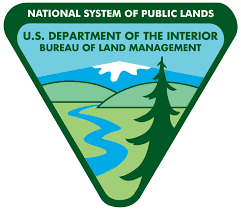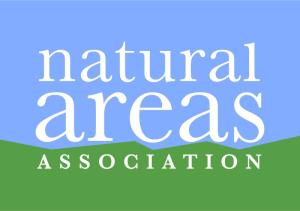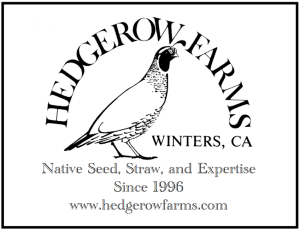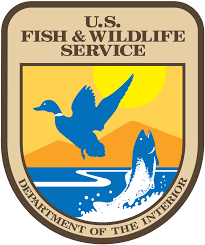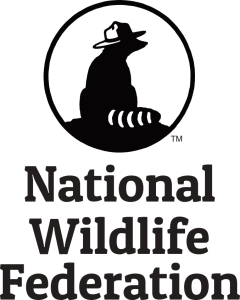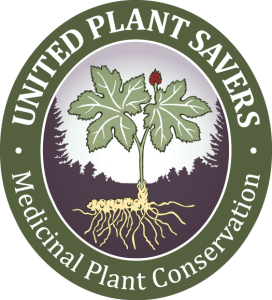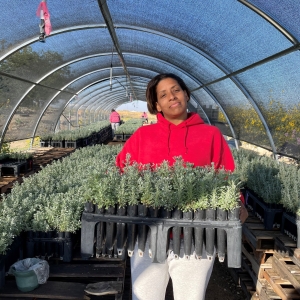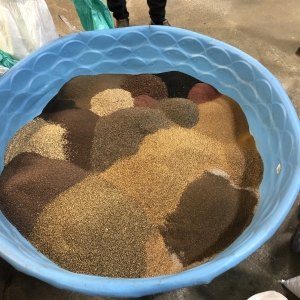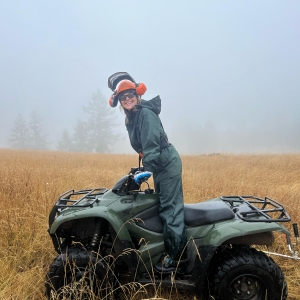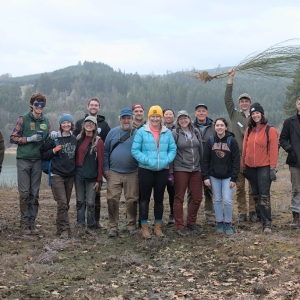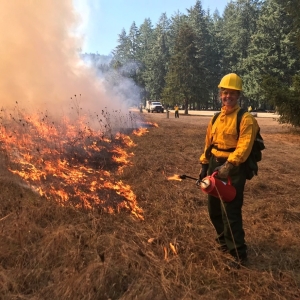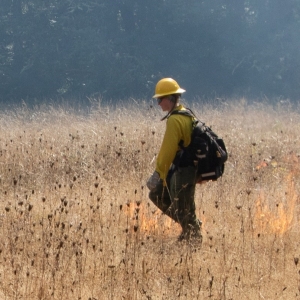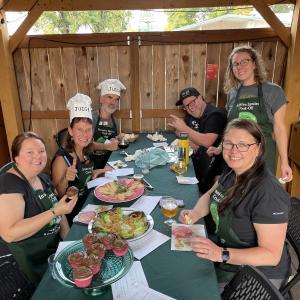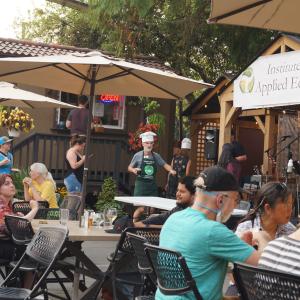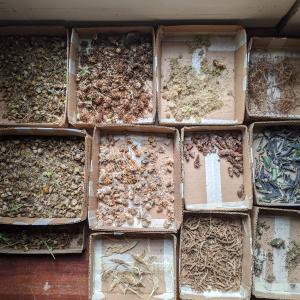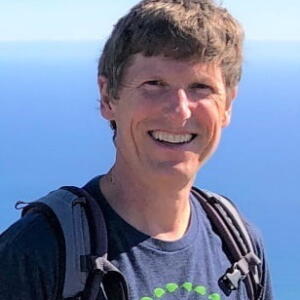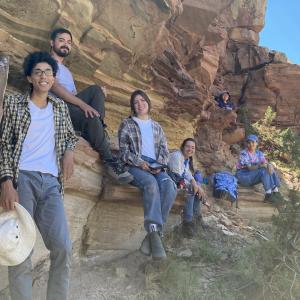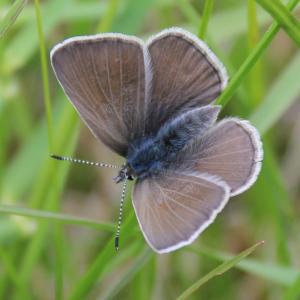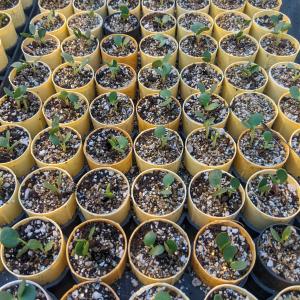Our Story
The National Native Seed Conference is an annual event sponsored by the Institute for Applied Ecology which connects Research, Industry, Land Management, and Restoration professionals, providing the premier opportunity to develop relationships and share information about the collection, research and development, production, and use of native plant materials.
The 2023 National Native Seed Conference, Cultivating the Restoration Supply Chain, will be in the Washington D.C. metro area from March 27 – 30, 2023. The conference will host a wide variety of talks and presenters during the concurrent sessions. The agenda also features workshops, field trips, panels, a poster session, and plenary sessions. This 3.5 day conference will also offer numerous opportunities for networking and connecting with restoration professionals, land managers, and native seed producers.
The 2023 National Native Seed Conference is dedicated to the science, practice, and policy of producing and effectively using native seed. The conference supports the America the Beautiful Executive Order, National Seed Strategy for Rehabilitation and Restoration, and the UN Decade on Ecosystem Restoration. The Native Seed Network—a program of the Institute for Applied Ecology—is the force behind the National Native Seed Conference.
The conference is the largest event in the world focused on native seed. It is a treasured gathering that connects research, industry, land management, and restoration professionals to share information, gain new perspectives, and build networks to increase the successful use of native seed on the landscape.
Since the first meeting in 2010, the conference is recognized as the leading forum for the latest research and activity in the following subjects:
- Species selection and seed collection
- Plant material evaluation and seed zone determination
- Field establishment and cultural practices
- Commercial native seed production
- Storage and distribution solutions
- Current methods for successful habitat restoration & rehabilitation
- Ecoregional native plant materials programs
- Economics and policies supporting restoration & rehabilitation
An overriding theme of the conference is practical information with direct implications for land management. It presents a unique opportunity to exchange information among groups confronting the same issues in different parts of the world. The last conference was held in February 2017 in Washington, D.C.
Who We Are
The Institute for Applied Ecology (IAE) is a 501(c)(3) organization located in Corvallis, Oregon and Santa Fe, New Mexico which is committed to the conservation of native species and habitats. The mission of the Institute for Applied Ecology is to conserve native species and habitats through restoration, research and education.
Our vision is a world where all people and wildlands are healthy and interact positively, biological diversity flourishes, and environmental challenges are met with a social commitment to solving problems with scientific principles.
We provide a service to public and private agencies and individuals by developing and communicating information on ecosystems, species, and effective management strategies. Restoration of habitats is a primary focus, and we conduct this work through partnerships with a diverse group of agencies, organizations and the private sector. We link our community with habitats through education and outreach. Learn more about us at www.appliedeco.org.
Sponsors
The National Native Seed Conference would like to extend a huge thanks to our sponsors!
Press Resources
Press Release
- National Native Seed Conference Press Release (March 27, 2023)
- National Native Seed Conference Press Advisory (March 20, 2023)
High-resolution Logos and Graphics
News Coverage and Blog
- 01/11/2023: “A butterfly rebounds with help from seed-growing prisoners”, Greenwire // OREGON
- 11/01/2022: “How a rare butterfly returned”, High Country News // OREGON
- 10/28/19: Fox News/New York Post: Scientists collecting seeds to reforest areas charred by wildfires // NATIONAL
Past news coverage of IAE and its programs can be accessed here. A full archive of blog posts by IAE staff, members and interns can be accessed here.
Quotes on the 2023 Conference
“Time is of the essence to bank the seeds and the genetic diversity our lands hold.”
—National Academies of Sciences, Engineering, and Medicine (NASEM) report, 2023.
“The National Native Seed conference brings together specialists in plant materials development – seed producers, restoration ecologists, seed biologists, land managers, and researchers – each supporting a different segment of the native seed supply chain. Getting these diverse stakeholders in the same room sharing their informed perspectives on what it will take to increase the availability of ecologically-appropriate native seeds is essential to a thriving native seed and restoration economy.”
— Melanie Gisler, Southwest Director of the Institute for Applied Ecology
“We are excited to continue to lead these efforts, and ready to step up to meet demand for local ecotypes as their importance is increasingly recognized by the scientific community. We hope this conference will help bring more specificity to future demand and tangible roadmaps to plan for scalable, consistent production over the long-term.”
—Julia Michaels, Ph.D., Restoration Ecologist with Hedgerow Farms
“I am looking forward to sharing ideas for better planning around local ecotype species. As an industry we keep hearing there is a shortage of seed, but we all have warehouses full of inventory. We all need to do a better job of planning ahead for the demand of local ecotype-sourced materials. Once there is consistent demand for these species and ecotypes, the industry will deliver.”
—Tren Hagman, Vice President of Granite Seed Company
“We’re drawing attention to the critical role of native seeds and plants in the long-term health and biodiversity of the planet. At the same time, we must build a coalition of land managers, tribes, scientists and growers that have the experience, the knowledge, and the skills to provide the right seeds at the right time in the right place. This requires foresight and planning from all stakeholders. If we all pitch in, we can produce enough of the seeds we need to restore the land.”
—Thomas Kaye, Ph.D., Executive Director of the Institute for Applied Ecology
